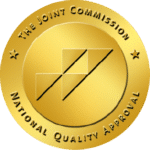Tarzana, South Bay, and Santa Monica
Ketamine Therapy, TMS
and CBT.
This Program is Changing Lives.
IOP level of treatment is 3 or more hours per day for 3 to 5 days per week.
We are not in network with any PPO insurance plans, but we can accept them as an out-of-network provider.
We have seen it work in our patients. Ketamine, TMS, and Psychotherapy for Depression is a clinically proven, extremely effective, holistic combination to break through Depression and anxiety. That is, for Treatment-Resistant Depression (TRD) specifically. That stubborn kind that does not otherwise respond to antidepressants and other Depression therapy.
Ketamine began as a treatment option for non-responsive Depression. Since it has grown to include other disorders, this treatment can be effective with conditions such as postpartum Depression, bipolar, anxiety, trauma, and post-traumatic stress disorder (PTSD). Both Ketamine and TMS have been showing high success results in treating Depression. However, it remains a depression alternative treatment option for many people.
Our licensed providers and psychotherapists use a holistic approach to therapy. We use different and specific treatment combinations of ketamine, esketamine (Spravato), Transcranial Magnetic Stimulation (TMS), neurofeedback, and virtual reality treatment, depending on your needs. We also use group psychotherapy, couples and family therapy, and hypnotherapy to treat disorders.


Lastly, our depression IOP/PHP is licensed and The Joint Commission accredited. Psychotherapy, Spravato, TMS may be covered and is given by licensed or certified providers. The depression program is physician run, FDA approved and is Insurance Covered. Although, if you don’t have insurance, we have some PROMOTIONAL RATES HERE.

Therapy
29 August 2023
How to assess Assessing mental dependence on a medicat…

Mental Health
June 15, 2023
Happiness is not out there for us to find. The reason tha…

Depression
June 12, 2023
It’s reported that 1 in 11 adults experienced depression…
FIND RELIEF WITH CLEAR MIND
Schedule a free confidential consultation with a member of our team. Get your questions answered quickly.
Connect With Us
Our Locations:
Certification Number: 191268AP
Expiration: 9/30/2025



Clear Mind Treatment is an intensive outpatient healing center that helps individuals struggling with depression, anxiety, trauma and related mental health concerns. Our beautiful, private facility welcomes clients to take part in our uniquely individualized treatment program.

LGBTQIA-Friendly Environment

We proudly work with veterans, police officers, firefighters, and first responders. Post-traumatic stress disorder (PTSD), trauma therapy and treatment. Have you or a loved one witnessed and or lived through a traumatic, scary, shocking or stressful event? PTSD therapy and treatment might be right for you!
